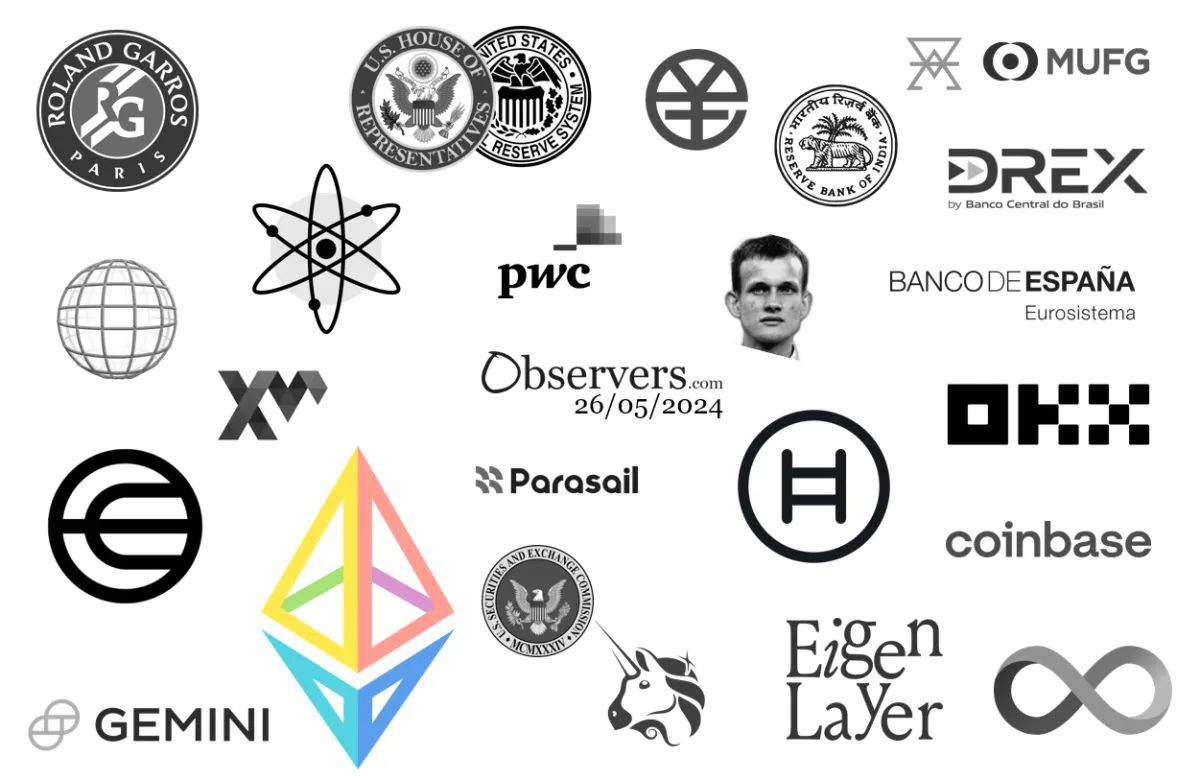
All eyes have been on France this weekend. South of the country, the 77th Cannes Festival drew to a close on Saturday with Anora, a drama-comedy by U.S. filmmaker Sean Baker, taking home the festival's most important prize, the Palme d'Or.
The French Open, the second Grand Slam tournament of this year, kicked off today at the Stade Roland Garros in Paris. Iga Swiatek and Novak Djokovic are the two favourite players for the two-week tennis competition.
U.S. players are frequently on top of the competition, whether in movies, tennis, or online games. In the memecoin game WorldPvP, where players compete for the chance of nuking a foreign country in the name of their own, the United States has won for the second week in a row. After destroying China in their first victory, this time, the victim was North Korea.
The biggest and most unexpected win in the crypto markets this week was the approval by the U.S. Securities and Exchange Commission for eight Spot Ethereum Exchange Traded Funds. While the SEC often acts as a ruthless adversary of blockchain-based currencies, there are signals that the green light for other alt-crypto ETFs might be on the horizon.
Another victory in the ecosystem this week was that of former investors in Gemini, as a New judge approved the failed crypto lender's plan to pay back its users in kind. Users who have put their money into Gemini Earn, the company's joint service with the cryptocurrency exchange Gemini, are also about to receive their funds back.
The other Web3 projects are yet to face possible litigations on their development path. After Spain and Portugal halted the operations of the proof-of-identity protocol Worldcoin, Hong Kong has now done the same. Authorities stated that their operations "involve serious risks to personal data privacy." Also this week, Uniswap responded to the Wells notice issued by the SEC, pushing back against the assertion by the regulator that it operates an unregistered securities exchange and unregistered securities broker.
Bridge protocols are easier to hack than other smart contracts, making them some of the biggest losers in the blockchain industry. Cosmos has accepted that losing is unavoidable and has deployed a solution called IBC Rate Limits, which, rather than trying to avoid hacks, tries to limit their destruction potential.
If you prefer winning rather than losing, don't trust crypto influencers. A new study has found that the suggestions and investment advice of self-entitled experts about crypto projects on social media lead to losses in the long term.
An investment strategy worth considering is observing what major investors do and following along those lines. Multibillion-dollar companies are getting into crypto through any means possible, and if some follow a more risk-adverse strategy and invest in ETFs, others are directly putting their money on projects such as public ledger Hedera. The platform's governance council has attracted some big heavyweights of tech, including Google, Dell, and IBM.
With the expansion of blockchain technologies, crypto exchanges have also become big investors. OKX Ventures was the top crypto venture capital investor in the first quarter of this year, closing 71 deals. Binance and Coinbase investment arms, while with fewer projects, are also using their profits to grow the sector.
Artificial intelligence continues to attract more investment, and given how beneficial blockchain can be to AI, projects merging the two technologies are optimistic about the future. Internet Computer Protocol (ICP) has recently unveiled a new roadmap detailing how it aims to become a leader in Decentralized AI (DeAI).
Innovation-wise, Decentralized Physical Infrastructure (DePIN) projects are the latest rage. WeatherXM is taking Web3 to new industries by allowing users to set up individual weather stations that give out precise meteorological information in exchange for WXM tokens.
To facilitate the flow of funds in the upcoming DePIN market, a new project called Parasail is building an interface for users to restake assets. The platform also intends to allow projects to reuse the assets, users, and hardware resources of other DePIN initiatives.
Through EigenLayer, restaking in Web3 has become quite popular. As new projects come into the market, the foundation behind the protocol is working double and has fished, with some level of controversy, with Ethereum researcher Justin Drake as its new advisor.
The most well-known Ethereum researcher, Vitalik Buterin, has recently boasted about the success of the blockchain scaling efforts in making L2 perform as if it had sharding capabilities, even though official sharding is only expected to be deployed on the network next year.
Finally, on Observers' Banking and CBDC Weekend Roundup, we explore the decision of the U.S. House of Representatives to pass a law preventing the Federal Reserve from launching a CBDC. Other major economies, however, are not following the U.S. lead. Brazil, China, and the European Union are all advancing with their central bank digital currencies.

